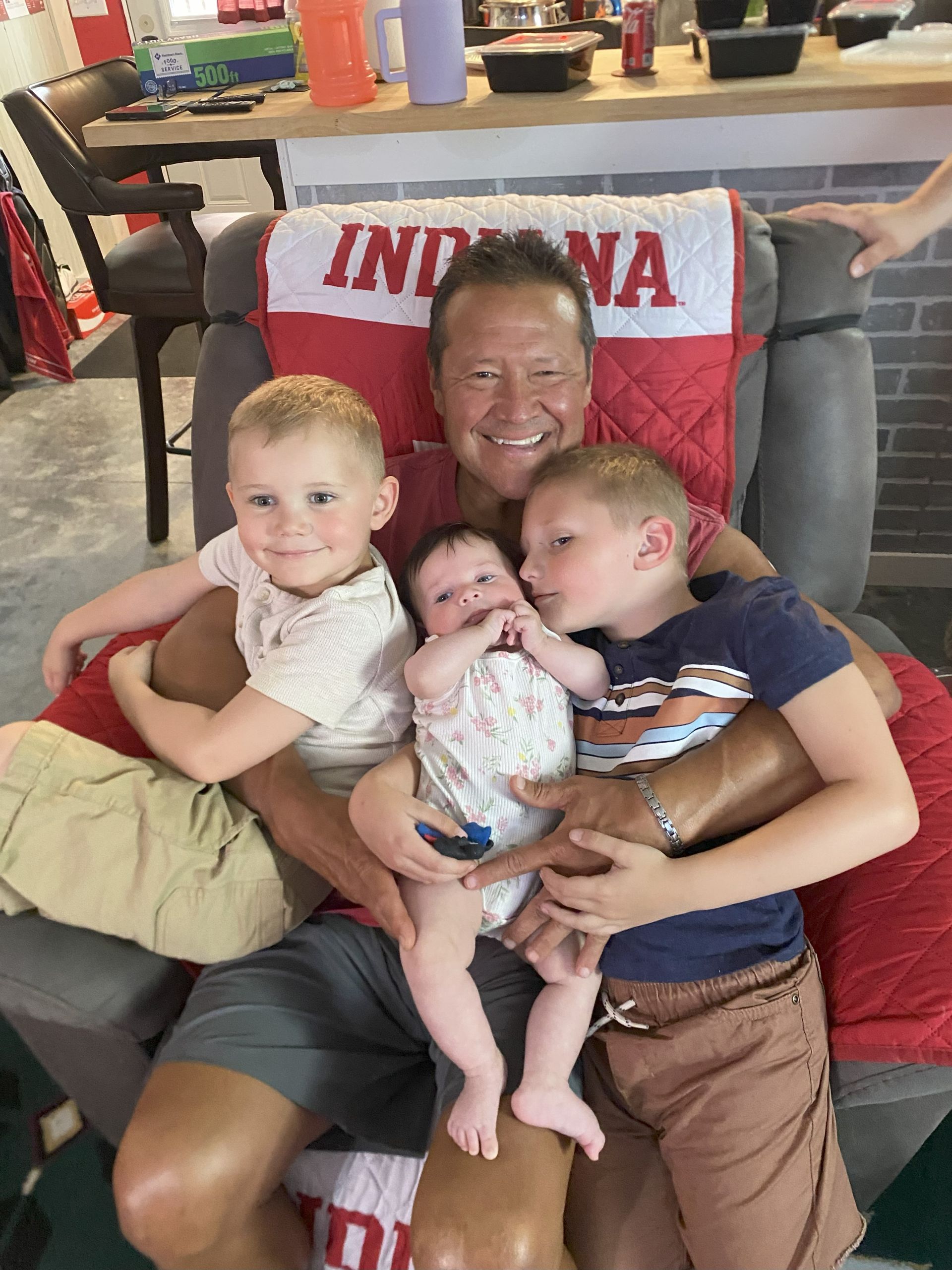Lee Johnson
Something’s Not Right: One Patient’s Story of Listening to His Gut.
After catching COVID-19 twice, Lee Johnson struggled with lingering lung problems and chest pain. His symptoms didn’t improve despite multiple tests and treatments with steroid medication. Lee’s instincts told him more was going on — and he was right.
Today, Lee is back to golfing, taking long walks and chasing after his grandkids, thanks to the quick action and teamwork across the St. Elizabeth Healthcare System.
A Family History You Can’t Ignore
When Lee first noticed he was struggling to finish his regular three-mile walks, he grew concerned. “I would get short of breath, and I could feel the pressure in my chest,” he says.
The first steroid treatments for post-COVID symptoms didn’t work. So, Lee’s providers checked his blood pressure and ordered initial tests, including an electrocardiogram (EKG), to check the structure and rhythm of his heart. Everything came back normal.
But with a strong family history of heart disease and heart attacks, Lee knew better than to ignore the signs. “My grandfather, father and uncles all had heart attacks. I just had a gut feeling something was wrong, and I was determined to get it checked out,” he says.
His care team at St. Elizabeth Dearborn Hospital referred him to the St. Elizabeth Edgewood Emergency Department for further evaluation.

Learn More
For a new patient cardiology appointment, call (859) 287-3045.
Our Cardiac Surgeons are also available for new consultations or second opinions, call (859) 301-9010.
Discovering a Life-Threatening Concern
At the Emergency Department, Lee stayed vigilant, even watching his own heart monitor during various tests. His care team listened to his concerns and, to be thorough, ordered an angiogram — an imaging test that reveals blockages in the heart’s arteries.
“From the moment I looked at the monitor, I knew something wasn’t right,” Lee recalls.
The angiogram images confirmed his instincts. The pictures showed Lee had two potential blockages: one artery was 100% blocked, and another was 80% blocked — a condition commonly called a “widowmaker.”
A widowmaker is a blockage in the left anterior descending (LAD) artery — the main vessel that supplies blood to the heart. It is often life-threatening without immediate treatment. Symptoms can include chest pain, shortness of breath, dizziness, fatigue and sometimes discomfort in the arms, back or jaw.
Without treatment, Lee could have suffered a severe heart attack. To prevent that event and potentially save his life, Lee’s Cardiologist recommended urgent open-heart surgery.
A New Lease on Life
Within hours, Lee underwent open heart surgery at St. Elizabeth Edgewood Hospital. Ten hours after hearing the news, he was in surgery, supported by his children and a team of cardiovascular specialists.
Today, Lee says he feels better than he has in years. He stays active and watches his diet. Overall, he’s focused on his wife, children and grandchildren.
“I’m back to walking and golfing, playing with my grandkids — anything I want to do,” he says. I’m so thankful I had it all done when I did because I’m here now. I’m back to living life.”
The Power of Self-Advocacy and Teamwork
Lee’s journey is a powerful reminder that patients and providers working together can make a life-saving difference. His persistence, combined with the expertise across St. Elizabeth Dearborn and Edgewood Hospitals, ensured they caught his hidden heart condition before it was too late.
“Trust your gut,” Lee says. “You know your body better than anyone. If something feels off, speak up. I’m alive today because I did.”
Do you have a health concern and want to schedule an appointment? St. Elizabeth providers are ready to help. Our team works across locations to deliver the answers — and the care — you need.

